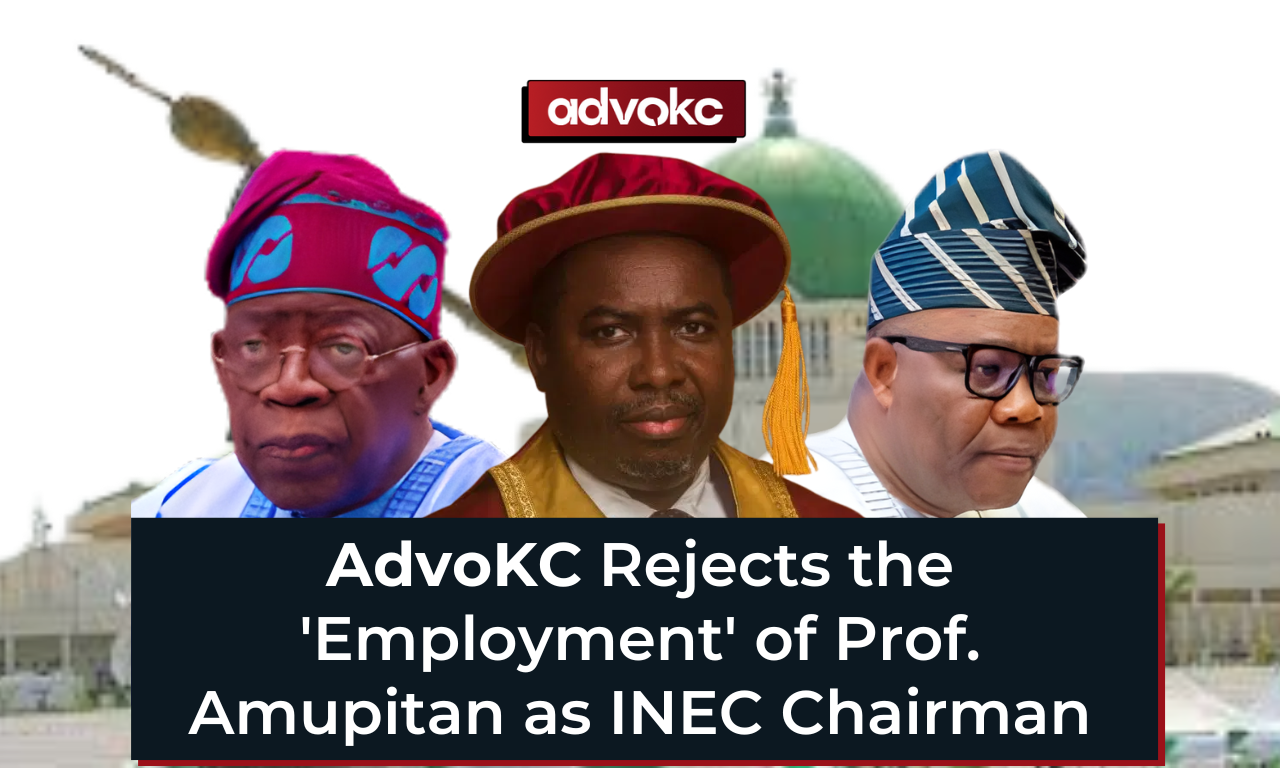
AdvoKC Foundation, a civic tech, youth led organisation committed to strengthening transparency and accountability in government and deepening citizen participation, expresses deep disappointment and concern over the Senate’s confirmation of Professor Joash Amupitan as the new Chairman of the Independent National Electoral Commission (INEC). This decision, taken despite growing calls from civil society and citizens for a transparent, reform-driven process, represents a flagrant disregard for the independence of INEC and the credibility of Nigeria’s elections.
The issue is not, and has never been, with the person of Professor Amupitan, whose academic qualifications are noted. The disappointment is rooted squarely in the National Assembly’s unwillingness to seize a historic opportunity to cure a structural defect that undermines our democracy.
The confirmation tacitly endorses the deeply flawed process stipulated in Section 154(1) of the 1999 Constitution (as amended), which grants the incumbent President the sole power of nomination. By confirming the nominee without first amending this section, the National Assembly has chosen to perpetuate the institutional conflict of interest where the umpire owes its leadership to a political contestant.
The Senate’s hasty action stands in direct contradiction to the democratic efforts already initiated by the 10th House of Representatives through Bill HB 1589, which seeks to strip the President of the unilateral power of appointment. The confirmation, conducted while this reform bill is active, effectively drains the political will necessary for the passage of that vital legislation. It signals that legislative bodies can ignore public demands for systemic change, prioritising the maintenance of the status quo of executive control.
Electoral credibility is built on both fact and perception. The confirmation confirms to millions of Nigerian voters that the head of the electoral body is a product of executive patronage. This act is a monumental setback in the long struggle to build public trust, ensuring that results from future elections, particularly the crucial 2027 General Elections, will continue to be viewed with corrosive suspicion and distrust, irrespective of how technically sound the process may be.
The 10th National Assembly, especially the Senate, had an opportunity to stand on the side of history by prioritising the Electoral Reform Bill currently in the works, a bill that seeks to depoliticise appointments into INEC. Instead, by proceeding with confirmation, they have chosen to ignore the public’s demand for reform and entrench executive overreach in an institution meant to be independent.
AdvoKC Foundation calls on the National Assembly to urgently revisit and pass legislation that ensures independent and non-partisan appointments into INEC and other critical democratic institutions and President Tinubu should support these reforms by publicly committing to a depoliticized electoral process. We also urge Professor Amupitan, despite the process of his emergence, to demonstrate extraordinary courage, independence, and impartiality, recognising that his tenure begins with a massive deficit of trust created by the actions of the National Assembly.
Without genuine independence, INEC cannot serve as the neutral referee Nigeria’s democracy desperately needs. Democracy thrives on trust, and that trust is being tested once again.
The promise to reform the process of appointing INEC officials now stands as “Broken in Spirit”, and Nigerians deserve a government that not only preaches reform but practices it.